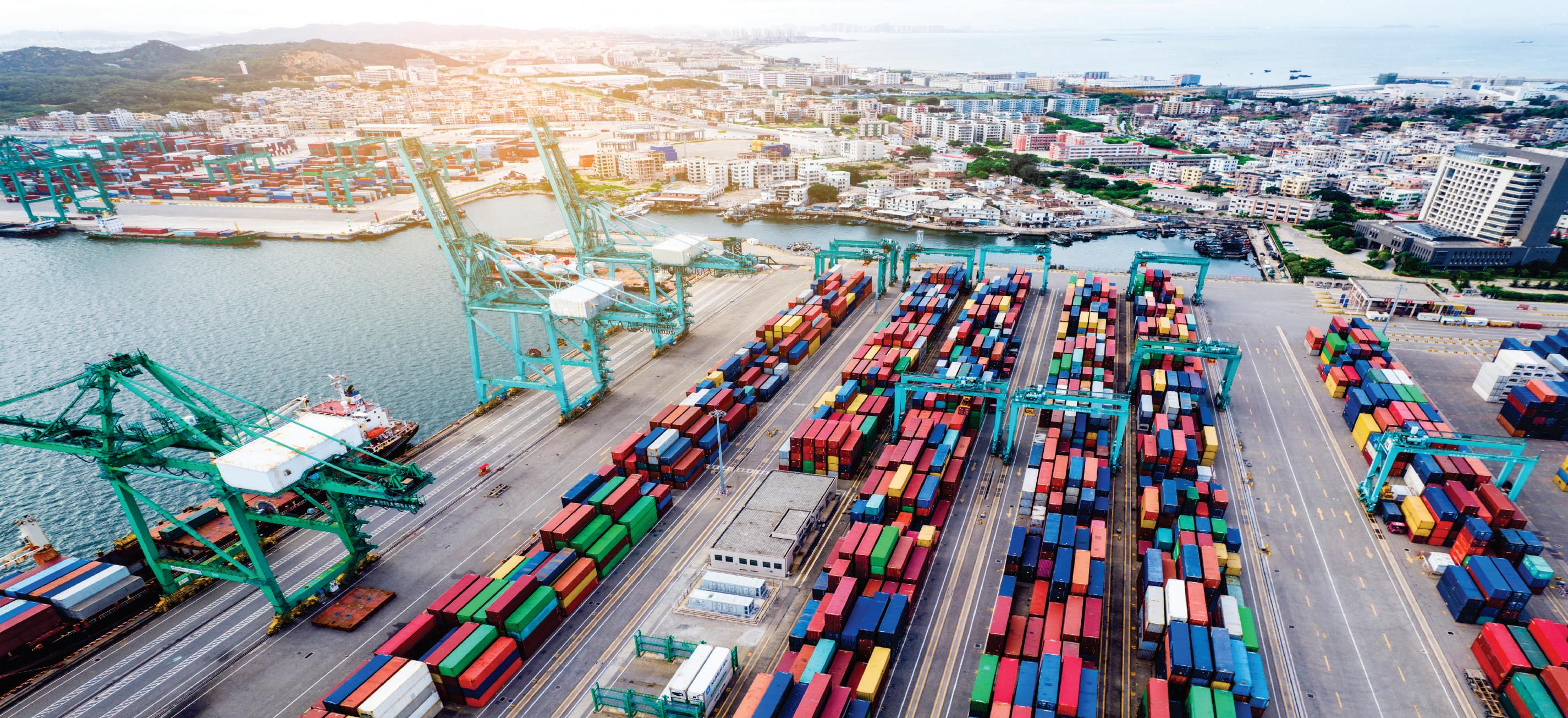
5 minute read
BHAVESH BARETHA
[ 164 ] | COLUMN
DEVELOPING A BETTER CHEMICAL SUPPLY CHAIN
Advertisement
BHAVESH BARETHA
MANAGER - CHEMICALS MAERSK SOUTH ASIA
The Indian chemical industry has been gradually expanding, with statistics indicating growth at a CAGR (compound annual growth rate) of 9.3% up to US $304 billion by 2025. This growth is supported by research & development and initiatives adopted by the Government of India that include reduction of customs duty on several imports, promotion of the ‘Make In India’ campaign and the launch of production linked incentive (PLI) schemes with 10-20% output for the agrochemical sector to foster an ecosystem for manufacturing growth in domestic markets and exports.
More recently, the government allocated Rs. 233.14 crore (US $32.2 million) to the Department of Chemicals and Petrochemicals under the Union Budget 2021-22. India is also seeing an increased investment from foreign strategic investors, with Japan, Korea, and Thailand leading the charge as they seek to diversify supply chains from China. With the increasing growth trajectory of the industry, the role of supply chain partners has become far more crucial. It’s not enough to meet typical logistical requirements merely; logistics providers need to go beyond and understand the core needs of the industry as it evolves.
Chemical companies seek supply chain partners who can support continuous production lines with effective storage solutions, increase margins with supply chain cost-efficiencies, improve safety and compliance, gain customer loyalty with greater visibility, and on-time deliveries. To top all these generic requirements, supply chain partners must acknowledge that one size does not fit all. This means that they must understand and fulfil customers’ core needs with solutions customised to their different needs and specifications.
Above all this, especially after being in a pandemic situation for over two years now, one of the most important aspects of chemical supply chains has come around resilience, given the importance and sensitivity of being on time during transits. But what does this resilience mean?
It means that the supply chain partners should be able to quickly adjust the flow of cargo as per the market’s changing needs or conditions in the logistics ecosystem. The underlying message here is that the supply chain partners should be able to switch between different modes of transport through cargo journey – between ocean, landside, or air. It is also essential to have the flexibility of storing the chemical cargo at any stage of logistics safely and securely suitable to the type of cargo. In summary, resilience in the chemical supply chains points toward the logistics partner’s robust ability to speed up or slow down the flow of goods depending on external requirements.
The flow of information is becoming an increasing necessity to aid the resilience expected by a shipper from a supply chain partner. The information in consideration here includes the type of cargo that is being moved, as it defines how it is handled, and forecasting the supply and demand in the market. This information from the shipper helps the supply chain partner plan the logistics in the most effective manner leading to effective inventory handling, directly impacting the cost and bringing it down. There is a lot of data at both ends of the supply chain and through the journey. This data needs to be shared across all the involved stakeholders for driving maximum efficiency.
Digital transformation and sustainability are the next developing key trends in logistics. They are most sought after by companies looking to enhance their overall value chain with reduced costs & time, higher reliability
COLUMN | [ 165 ]

& safety compliance, and complete visibility from end to end. Technology is gradually playing an increasingly important role in transforming businesses and driving their growth. Shippers look to their supply chain partners to provide them with intelligence and visibility that reduces manual work and processes and, at the same time, empowers them to act quickly and intelligently when faced with situations such as delays or changes to destination or demand.
Blockchain is also becoming an increasingly familiar face as it helps create platforms that can connect entire ecosystems and reduce paper trails. The TradeLens platform, jointly developed by IBM and Maersk, underpinned with blockchain technology, is a key example of how a network of stakeholders can be on the same platform to provide real-time visibility and trackability of cargo movement together contribute towards the digitisation of the supply chains. This is especially important for the chemical sector, where timely deliveries mean a lot more than many other types of cargo. As an industry leader, climate action has become a strategic imperative for A.P. Moller – Maersk, and we are stepping up efforts to provide end-to-end sustainable supply chain solutions. Engaging in strategic partnerships with various entities across the world, we’ve already made great strides towards this goal, including investing in the design of the next generation of vessels that would run on green fuels, the introduction of electric trucks for landside movement, sourcing sustainable aviation and ocean fuel amongst many others. Maersk is offering ECO Delivery to customers willing to decarbonise their supply chains. An Emissions Dashboard is also available for customers keen to track their supply chain’s
carbon footprint and make adjustments according to their own goals.
At Maersk, we are proud to offer specialised integrated logistics solutions for the chemical industry with a strong focus on resilience, digitisation, analytics, and sustainability at its core. Through these solutions, we are committed to designing and implementing supply chains for our customers that are tailor-made to their requirements and reduce manual paperwork and processes while also providing real-time visibility and trackability of the movement of their cargo. n










